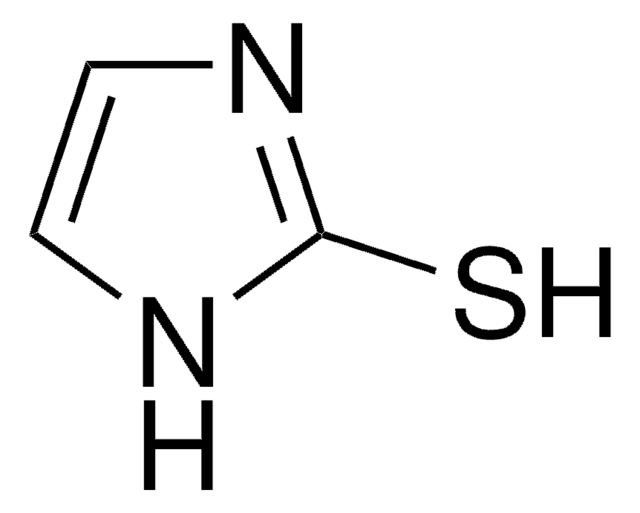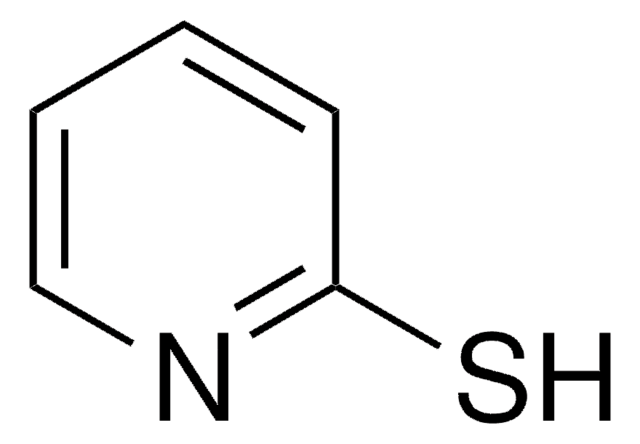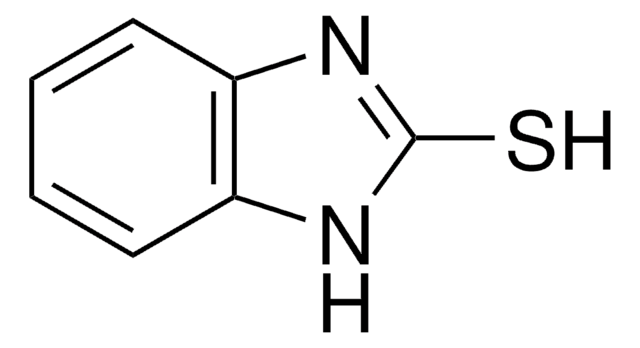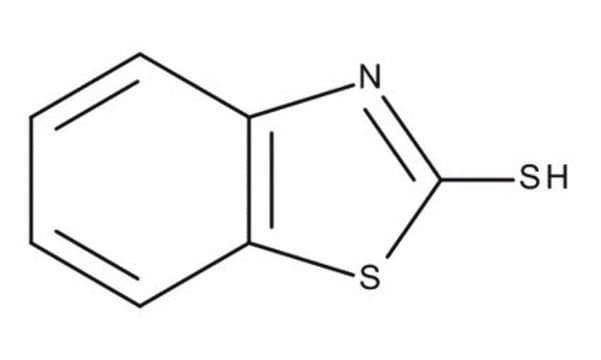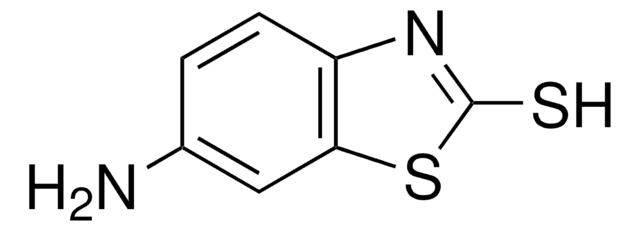M3205
2-Mercaptobenzimidazole
98%
Synonym(s):
1,3-Dihydro-2H-benzimidazole-2-thione, 2-Benzimidazolethiol
About This Item
Recommended Products
Quality Level
Assay
98%
mp
300-304 °C (lit.)
SMILES string
S=C1Nc2ccccc2N1
InChI
1S/C7H6N2S/c10-7-8-5-3-1-2-4-6(5)9-7/h1-4H,(H2,8,9,10)
InChI key
YHMYGUUIMTVXNW-UHFFFAOYSA-N
Looking for similar products? Visit Product Comparison Guide
General description
Application
- To prepare 2-benzimidazolylthioacetophenones by reacting with aromatic ketones, which is a key intermediate for the synthesis of thiazolo[3,2-a]benzimidazoles.
- To synthesize S-arylated 2-mercapto-benzimidazoles via S-arylation with substituted aryl iodides using CuI and 1,10-phenanthroline.
Signal Word
Danger
Hazard Statements
Precautionary Statements
Hazard Classifications
Acute Tox. 3 Oral - Aquatic Chronic 3 - Skin Sens. 1A - STOT RE 2
Storage Class Code
6.1C - Combustible acute toxic Cat.3 / toxic compounds or compounds which causing chronic effects
WGK
WGK 2
Personal Protective Equipment
Regulatory Listings
Regulatory Listings are mainly provided for chemical products. Only limited information can be provided here for non-chemical products. No entry means none of the components are listed. It is the user’s obligation to ensure the safe and legal use of the product.
JAN Code
M3205-BULK:
M3205-25KG:
M3205-5G:
M3205-500G:
M3205-100G:
M3205-VAR:
Choose from one of the most recent versions:
Already Own This Product?
Find documentation for the products that you have recently purchased in the Document Library.
Customers Also Viewed
Our team of scientists has experience in all areas of research including Life Science, Material Science, Chemical Synthesis, Chromatography, Analytical and many others.
Contact Technical Service
